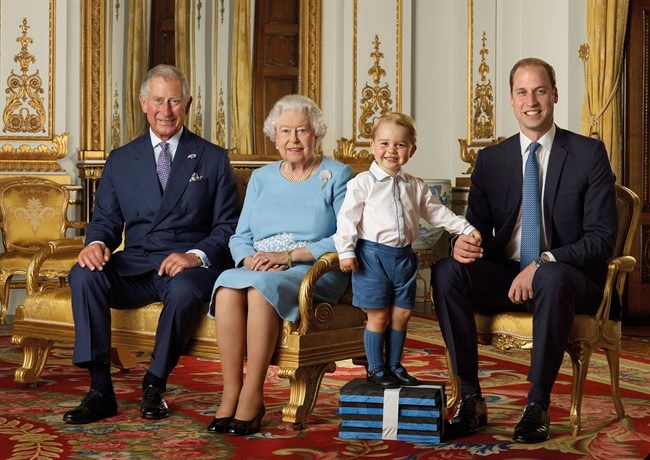She captured our affection as a princess and earned our respect as Queen. As the Queen turns 90 today, we celebrate a monarch who has proved her devotion to duty for 64 years.
The young woman who visited Victoria in 1951 as a princess is now the longest-serving monarch in British history. Throughout her decades on the throne, she has been what U.K. Prime Minister David Cameron called “a golden thread” running through our history.
Being queen is not a popularity contest, but the Queen has consistently been popular. A poll this week by the Angus Reid Institute found 64 per cent of Canadian respondents supported continuing to recognize Elizabeth as Queen.
Support for her generally outstrips support for the institution of monarchy, with 42 per cent in that same poll saying Canada “should continue as a monarchy for generations to come,” 38 per cent saying it shouldn’t, and 20 per cent being undecided or having no preference.
The discussion over the future of the monarchy will continue, but one of the best arguments for keeping the institution is the Queen herself. From her service during the Second World War, to taking the throne on her father’s death, to working long past the age when most people retire, she has embraced the responsibilities that come with this most unusual role.
Last September, when she officially passed Queen Victoria to become the longest-serving monarch, Cameron described a vow she made as a young woman to dedicate her life to serving the Commonwealth.
“It’s one thing for a 21-year-old to utter those inspiring words. It’s another to live by them for more than 60 years,” Cameron said.
“She has served this country with an unerring grace, dignity and decency, and long may she continue to do so,” he said.
As we watch the circus of Americans trying to pick their next head of state, there is an appealing simplicity to heredity. Picking leaders by birth is undemocratic, but — leaving aside events such as the Wars of the Roses — it’s usually much less messy than elections.
That’s not to suggest we should go back to the old ways. Messy as it is, democracy is still the best way to pick the people who will wield power.
The Queen, however, does not wield power. She stands outside the hurly-burly of politics, providing advice and continuity, personifying the nation and the Commonwealth.
Separating the reality of power from the pomp of the state reminds prime ministers that they are not dictators. In a sense, the Queen acts like the person behind the triumphant Roman general who repeated: “You are not a god. You are not a god.”
The Queen has seen many triumphant politicians come and go, in Britain, Canada and the other countries where she has been head of state. While they fade from the stage, she remains, which is the strength of the monarchy.
Her father, who did not expect or want to be king, rose to the challenge during the darkness of the Second World War. The Queen, better prepared perhaps, faced challenges she did not expect or want — and rose to them.
At 90, the Queen still shows us how to serve with grace.



